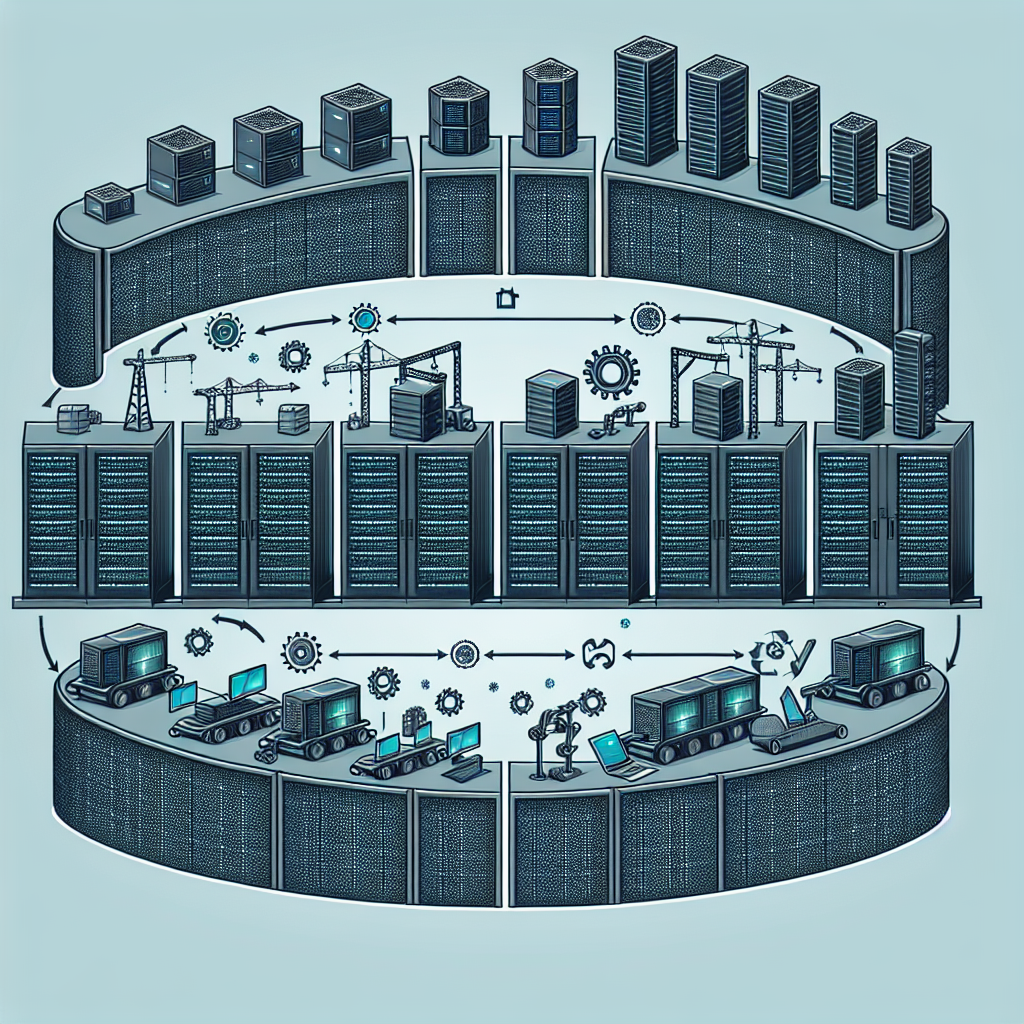Your cart is currently empty!
The Role of Automation and Technology in Data Center Lifecycle Management

Data centers are the backbone of today’s digital world, serving as the nerve center for storing, processing, and managing vast amounts of data. As the demand for data storage and processing capabilities continues to grow, the need for efficient data center lifecycle management becomes increasingly critical. Automation and technology play a crucial role in streamlining and optimizing the various stages of data center lifecycle management.
Data center lifecycle management encompasses the planning, design, construction, operation, and decommissioning of data centers. Each stage in the lifecycle requires careful coordination and management to ensure the data center’s efficiency, reliability, and security. Automation and technology solutions can help data center operators and managers navigate these complexities and ensure that their data centers are running smoothly and cost-effectively.
One of the key benefits of automation in data center lifecycle management is the ability to streamline routine tasks and processes. Automation tools can help automate tasks such as monitoring and managing server performance, provisioning and de-provisioning resources, and handling software updates and patches. By automating these tasks, data center operators can reduce human error, improve efficiency, and free up valuable time and resources for more strategic initiatives.
Technology also plays a crucial role in data center lifecycle management by providing advanced monitoring and analytics capabilities. Real-time monitoring tools can provide insights into the performance of data center infrastructure, identifying potential issues before they escalate into more significant problems. Analytics tools can analyze data center performance metrics to identify trends and patterns, enabling data center operators to make informed decisions about resource allocation, capacity planning, and optimization.
Moreover, technology solutions such as cloud computing and virtualization can help data center operators optimize resource utilization and improve flexibility and scalability. Cloud computing allows data center operators to offload workloads to the cloud, reducing the need for on-premises infrastructure and enabling more efficient resource allocation. Virtualization technologies enable data center operators to create virtual instances of servers, storage, and networking resources, enabling greater flexibility and agility in managing data center resources.
In conclusion, automation and technology are essential components of effective data center lifecycle management. By leveraging automation tools and technology solutions, data center operators can streamline operations, improve efficiency, and ensure the reliability and security of their data center infrastructure. As data centers continue to play a critical role in powering the digital economy, investing in automation and technology solutions will be crucial for staying competitive and meeting the growing demands of the digital age.

Leave a Reply